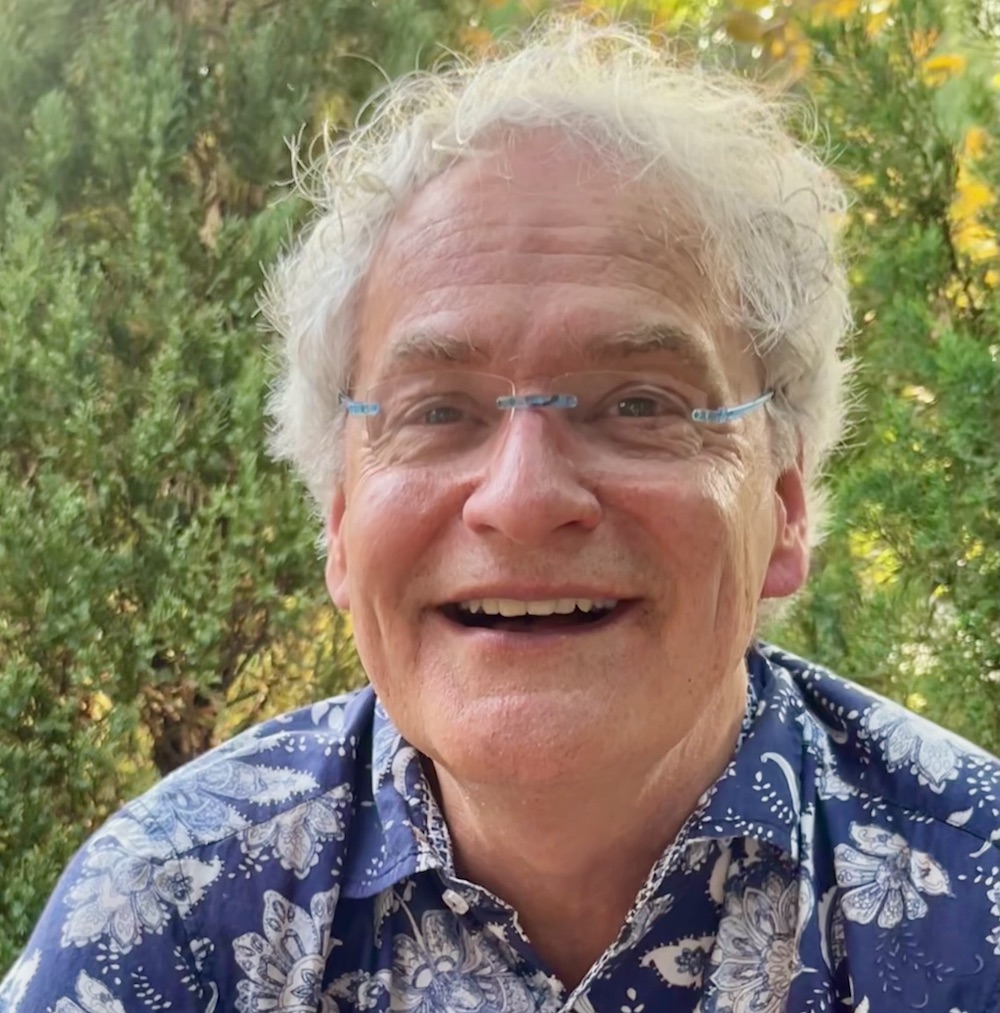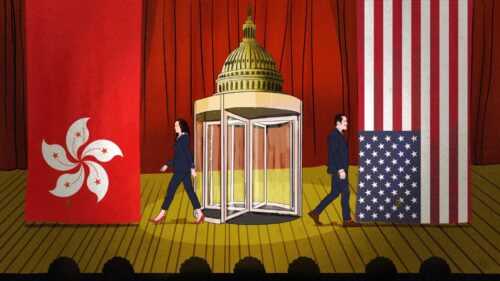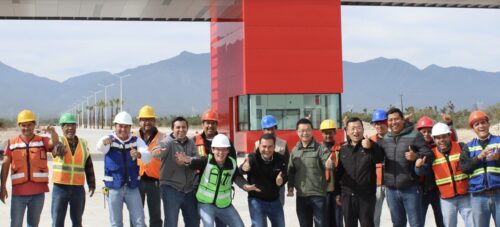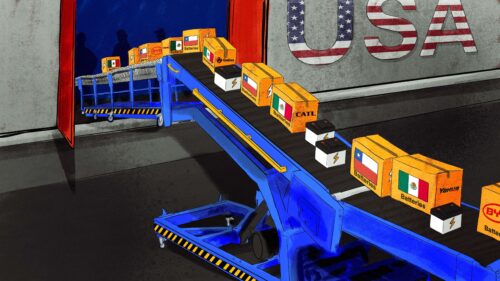American innkeeper in rural China keeps a light on for guests
Brian Linden and his wife Jeanee invested their life savings in building a business in rural China decades ago. The legacy and future of their work are uncertain amid shaky U.S.-China relations.

Not many Americans are willing to live in rural China for decades and to invest their life savings to achieve a goal there. That’s what Brian Linden and his wife Jeanee did decades ago. The international media has dropped in on them periodically, and their story has been well told up to this point. They are still there accomplishing things — but the legacy and future of their work are uncertain as they write what might be the final chapter in their 40-year journey in China.
Americans like the Lindens have been key vertebrae of the modern bilateral relationship that began 50 years ago with Richard Nixon’s visit. They now face the potential end of the line as the U.S. and China drift further apart politically and economically. Uncertainty remains a regular ghostly guest at the Lindens’ hostels in rural Yunnan Province, a metaphor for the bilateral relationship.
Linden arrived in China as a self-appointed citizen diplomat. “I felt that people-to-people, folk-level relationships needed to be promoted,” he told me. “I didn’t want to do that in the big cities. We developed a platform in Yunnan with local governments, and people were very receptive.” The “platform” was a partnership between the Lindens and local government officials who were desperate to generate new jobs and tax revenue in their poor precincts.
They partnered with these government entities to access unused heritage structures and build boutique hotels that feature local culture, food, and architecture. It took them two years of searching the country before settling on a slice of Yunnan, a vast area that includes the Himalayan plateau and tropical jungles on the Burmese border. The village of Xizhou, with a large community of ethnic minority Bai people, some of whom are descendants of Genghis Khan, became the headquarters of the enterprise.
The local government allowed them unprecedented access and use of two nationally protected structures — large multifamily wooden mansions with rammed earth walls and numerous internal courtyards. Most of these structures were not habitable, and some had handwritten notes scratched on the walls from the Great Leap Forward, when commune members in scruffy Mao suits lived here and kept meticulous count of the daily rice harvests. Paddies and verdant fields of garlic still ring the foundations.
Fast forward a few years. The Lindens sold their home in the U.S., invested over $600,000 in their first Chinese building, and started to home-school their two sons, Shane and Bryce. The first hotel opened to considerable fanfare. “For the concept to work here, it had to focus on rural revitalization and poverty alleviation,” Linden said. “On a luxury-focused model, there is a lot of leakage out of the community. French wine and infinity pools don’t bring much revenue for the local people.”

During a sunny spring day pre-COVID, Xizhou was full of tourists. Americans were buying antique wooden spirit houses and local pottery. Linden helped with interpreting, too busy on this day to accept numerous invitations from local merchants to share a lunch of spicy tofu and vegetables. Tall, lean, long-haired, Linden stands out in almost every crowd he encounters. He has become a one-person PR firm for the American concept of doing well by doing good. He stops to chat with some newlyweds and their entourages who are also guests of the hotel. Locals call him Yáng Cūnzhǎng 洋村长, or foreign village head.
He revels in the role. “I take selfies with probably 200 people a day. I’m a foreigner. An enemy of the message machine in Beijing in some ways,” he said, referring to the frequently anti-America propaganda that gushes from the firehose of government media. “But the people want me to kiss their babies, and I do. Chinese people need to see a different America than they see in the media.”
Counterintuitively, he has become a bit of a media celebrity in China, with video crews frequently popping up on his properties to get his latest take on the hospitality industry or learn about a new project. His latest book, Redefining Diplomacy: One Village at a Time, was published this year by China’s leading publishing house. Linden spent three months in the spring giving lectures, hosting book signings and doing televisions shows around the country. He reminds interviewers that he represents a part of America comprised of pragmatists — “We must find ways to work with China” — rather than hawks who dominate official Washington discourse. It’s unclear whether the clashing images of Americans in Chinese media is causing cognitive dissonance, or if that’s the goal for a government in a country where contradictions are everywhere.
Brainwashed in Beijing
Linden says he’s not an apologist for China, preferring to be known for a more balanced American view, but that hasn’t shielded him from criticism from other foreigners in China or pundits abroad. “Some foreigners think I’m brainwashed. But I think they’re brainwashed, because they never leave thier expat enclaves, Western-style restaurants, and international schools. They can’t credibly use their cloistered experiences to tell the world what China is like. Many of them are not willing to take the risk to leave their cocoon.”
He knows that sometimes he comes across as pro-China. But he doesn’t want to do anything that would have a negative impact on American policy toward the country. “The U.S. embassy continues to say that people-to-people connections are good for the relationship, and the embassy folks are among my best supporters.”
He said the embassy has been concerned about American brands intermingling with historic sites. In one infamous case, Starbucks closed its shop in Beijing’s Forbidden City after people expressed outrage on social media and property managers insisted the outlet rebrand itself to remain. Linden has steered clear of such controversies, and so far, remains above the bilateral fray.
“I hope I can serve a useful purpose between the two countries,” he said. “I’m here to tell authentic stories about a China that many Americans don’t hear. I love this country, but I love America too.”
Linden chuckles when he thinks about how much money he could make if he created a hotel chain with infinity pools around the country. That wasn’t the life he wanted to have. He weathered, just barely, the zero-COVID era, with business sinking 40 percent. The crisis seemed not as bad in the rural areas, and Linden was supported by his local government partners, who sometimes “forgot to collect their share of revenues.” The last few months have been much better, with occupancy rates setting records, even without American visitors who have not returned in pre-COVID numbers and may not for the foreseeable future.
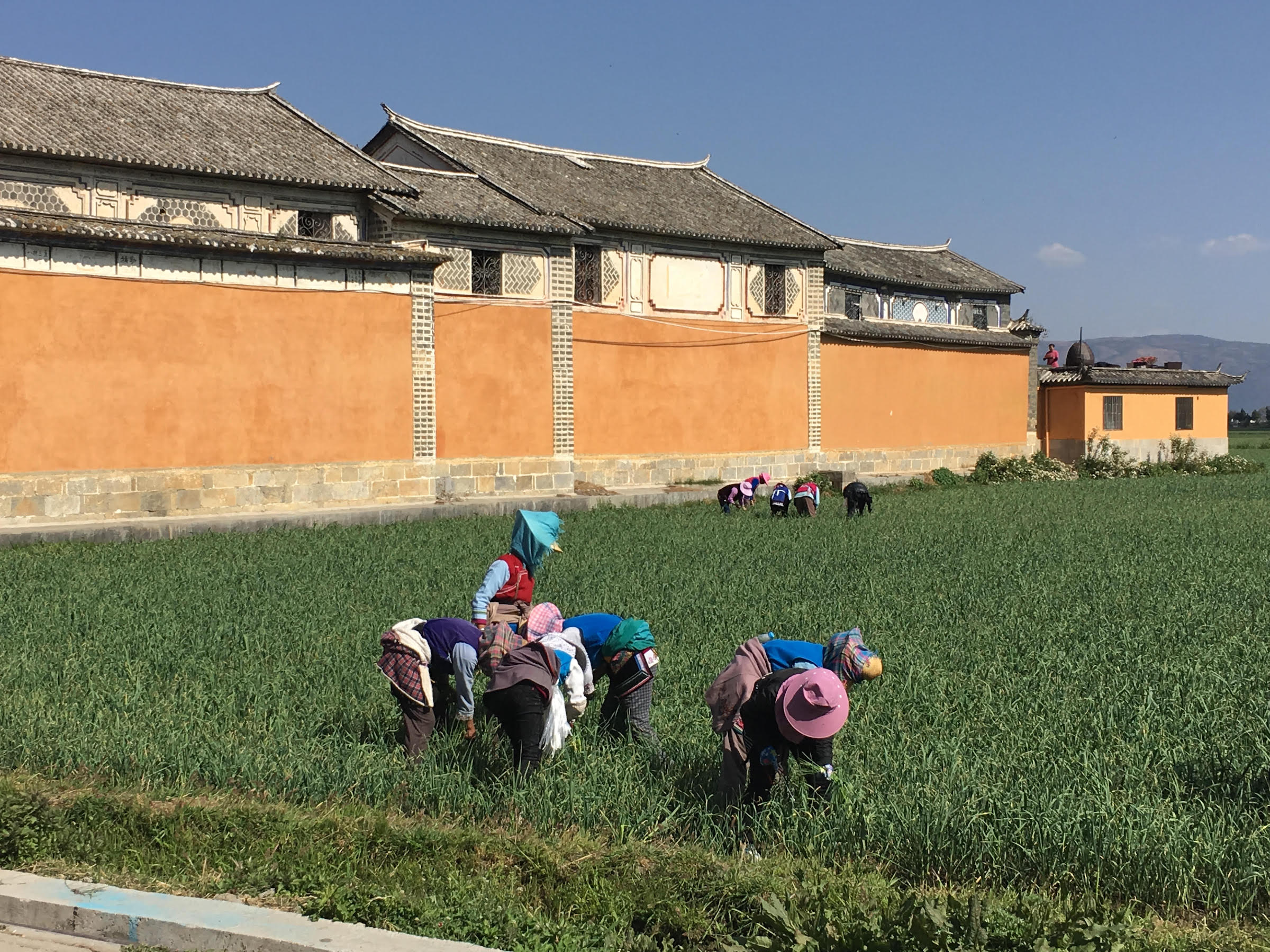
The Lindens currently have 10 sites around the country, including a massive Ming/Qing courtyard outside Suzhou, a stunning, newly constructed rammed earth hotel that received the American Architecture Award in 2019, and four new mountain projects around Yunnan’s Tibetan area of Shangri-La. Additionally, the Lindens have opened volunteer libraries, a museum, and education sites, and have dabbled in microfinance in the small villages surrounding their hotels.
Linden has been thinking a lot about the future. He and his wife are getting older, COVID was an exhausting, near-existential experience, the government appears more xenophobic. “China never makes you secure in your status. It is not an immigrant country, and it is hard to get visas. We love being here and the local people have embraced us. But there are a lot of institutional challenges that make it not feel secure.”
He’ll keep the kettle on for you, maybe
The time may come when the central government tells them to leave. They have invested quite a bit of equity here and they haven’t taken much out of China. Nevertheless, they have started distributing shares to their team members, all of them local Chinese, so if they leave the team members can carry on. It’s only fair, Linden says, that they give back to the people who have dedicated so much of their lives to this endeavor. “So many people have kept us afloat for so many years.”
Linden worries that the concept of corporate social responsibility has not caught on in China, making their model harder to replicate and to scale. In fact, the government takes a dim view of the private sector getting involved in alleviating poverty and working for the public good. But he and his wife continue doing just that, operating in a quiet — and they hope non-threatening — way, in the countryside far away from the center of power. They have allies in local government officials, but they ultimately answer to Beijing. The Lindens may not be around to see the tension between the Communist Party and the private sector resolved. More uncertainty.
It’s a watershed moment for the bilateral relationship and for the Americans and Chinese who have shaped it into the world’s most important. Like the transnational corporate behemoths who have profited from being “in China for China,” the Lindens will not leave China willingly. But they are and now feel much more vulnerable to fickle tectonic plates rumbling under their feet and properties. With direction finders unreliable, he continues to dash around the county in his overlapping roles of citizen diplomat, entrepreneur, social scientist, and “foreign village head.” He’s even bringing back one of his now-adult sons, whom he and his wife home schooled here, to join the team. He has more plans than ever, but the suitcases, now empty of the schoolbooks he brought for his then young kids, are still under the bed — just in case.
It’s when the shadows fall over the garlic fields these days near one of his hotels that he gets nostalgic, aware that one of the best benefits from all the time in China is what’s happened to his family. “We wanted our children to see their mother and father pursuing a dream,” Linden said. “Everything was made as a family decision. It has been a project for the family. That is very special.“
